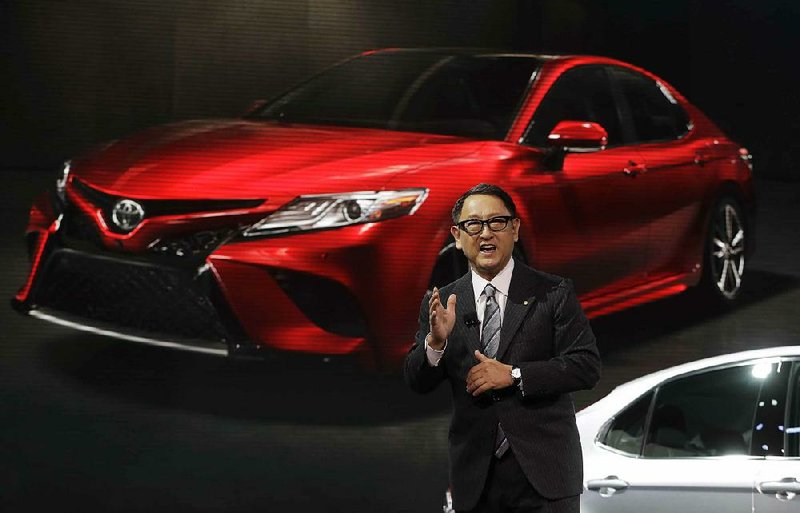TOKYO -- Toyota Motor Corp. said Monday that its profit fell 23 percent in the October-December quarter from a year earlier as its sales fell and a stronger yen squeezed its overseas earnings.
The company, which recently learned that it's likely to relinquish the crown of world's biggest automaker to German rival Volkswagen, reported that its fiscal third-quarter profit was $4.3 billion, down from $5.6 billion in 2015.
Quarterly sales of the maker of the Prius hybrid, Camry sedan and Lexus luxury cars slipped 3.5 percent to $63 billion.
A strong yen reduces the foreign-earned income of Japanese exporters when translated into yen. In its report for October-December, Toyota used an exchange rate of 109 yen to the dollar, compared with a rate of 121 yen a year earlier. During the quarter, the yen actually weakened against the dollar, which was trading at 102 yen in early September but ended the year at about 117 yen.
The change from 2015-2016 cost the company $1.8 billion in quarterly operating profit, Toyota said.
It raised its full year profit forecast through March 2017 to $15 billion and said it expects more favorable exchange rates.
The forecast is better than its earlier projection of $14 billion profit, but below the $20.6 billion earned in the previous fiscal year.
Earlier in the day, Toyota said it would work with Suzuki Motor Corp., which specializes in tiny cars, on ecological, safety and information technology -- fast growing areas in the industry. The Japanese automakers announced in October that they would study a partnership.
Volkswagen is likely to claim the title of world's biggest automaker for the first time, as General Motors Co. is not expected to beat Volkswagen's worldwide sales of 10.31 million vehicles in 2016. Toyota sold 10.175 million vehicles.
Detroit-based General Motors reports its sales later this week. Jim Cain, spokesman for the U.S. automaker, has said he doesn't think GM will hit 10.3 million.
Toyota must contend with possible trade tensions after President Donald Trump criticized the automaker's plans to build a Corolla plant in Mexico. The attack broadened with the U.S. leader rebuking Japan for sending the U.S. hundreds of thousands of cars from what he said were "the biggest ships I've ever seen" while American carmakers struggle to sell their vehicles in Japan.
"It's difficult to give any impact forecast from Trump's administration at this point," Tetsuya Otake, a Toyota managing officer, said in a briefing in Tokyo on Monday. "Toyota will cooperate with its group as it watches the moves from Trump's administration."
Toyota will invest $10 billion in the U.S. over the next five years, maintaining its pace of spending during the last half decade, joining other manufacturers in highlighting projects in response to pressure from Trump to create jobs in America. The spending includes a $600 million investment to expand its Indiana plant, adding 400 jobs, the carmaker said last month.
Information for this article was contributed by Yuri Kageyama of The Associated Press and Ma Jie and Yuki Hagiwara of Bloomberg News.
Business on 02/07/2017
